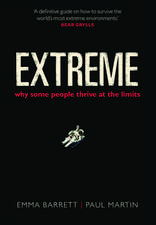Police as Problem Solvers
Autor J.D. Grant, H. Tochen Limba Engleză Paperback – 19 mar 2012
Preț: 388.72 lei
Nou
Puncte Express: 583
Preț estimativ în valută:
74.38€ • 77.87$ • 61.55£
74.38€ • 77.87$ • 61.55£
Carte tipărită la comandă
Livrare economică 07-21 aprilie
Preluare comenzi: 021 569.72.76
Specificații
ISBN-13: 9781468459180
ISBN-10: 146845918X
Pagini: 320
Ilustrații: 296 p.
Dimensiuni: 152 x 229 x 17 mm
Greutate: 0.43 kg
Ediția:Softcover reprint of the original 1st ed. 1991
Editura: Springer Us
Colecția Springer
Locul publicării:New York, NY, United States
ISBN-10: 146845918X
Pagini: 320
Ilustrații: 296 p.
Dimensiuni: 152 x 229 x 17 mm
Greutate: 0.43 kg
Ediția:Softcover reprint of the original 1st ed. 1991
Editura: Springer Us
Colecția Springer
Locul publicării:New York, NY, United States
Public țintă
ResearchCuprins
1 The Advent of Problem-Oriented Policing.- The “End Product” of Policing.- Problems as Behavior Patterns.- Evolution of the Problem-Oriented Approach.- Timeliness of the Problem-Oriented Model.- Old Wine with New Label?.- From Native Wisdom to Problem Solving.- A Hypothetical Example.- Building on a Foundation.- 2 Police Officers as Applied Social Scientists.- The Newport News Experiment.- The Battle of New Briarfield.- Expanding the Process.- Applied Social Research.- Science and Experience.- Finding Researchable Problems.- 3 Participation and Work Enrichment.- The Human Relations School.- Climbing Maslow’s Hierarchy.- Enriching Jobs.- The Work Reform Movement.- Who Does the Thinking and Planning?.- The Police Officer as a Problem Solver.- The Officer as “Intrapreneur”.- 4 Problems of Planned Change.- Problems and Obstacles.- Sources of Resistance.- Force Field Analysis as a Requisite for Change.- Garnering Community Support.- Harnessing Human Resources.- Supportive Concepts.- Evolving a Paradigm.- Strategies.- Toward an Epidemiological Science of Problem-Oriented Policing.- 5 The Oakland Project.- The Oakland Police Department.- From Research to Reform.- Inception of the Program.- 6 Defining a Problem: First-Generation Change Agents.- Evolving a Joint Frame of Reference.- Facing Larger Implications.- The Inadequacies of the Academic Approach.- Prelude to Action.- The Travails of Planning.- The Fruits of Labor.- Review of Aims.- Two Steps Forward.- A Happening.- A Rebirth of Anxiety.- An Identity Crisis.- Task Force Activity.- Diminishing Returns.- The Feel of Success.- The Group Has a Guest.- An Unsuccessful Exercise.- Intensive Work.- Stage Fright.- A Full Measure of Success.- A Profile of Morale.- 7 Addressing the Problem: Inventing the Peer ReviewPanel.- The Interview Experience.- Foundation Building.- Germination.- A Side Trip.- Defining the Mission.- Constructive Conflict.- Tooling Up.- The Opening Night.- The Man Who Came to Dinner.- A Command Appearance.- A Study in Complexity.- Back to the Drawing Board.- Running Out of Steam.- Accomplishment.- An Interlude of Alienation.- The Interviewer as Theorist.- An Activity Profile.- A General Comment.- A Concluding Note.- 8 Addressing the Problem: Designing Family Crisis Teams.- Preliminary Explorations.- Tooling Up.- Shaping a Group Mission.- A Data-Processing Session.- Foundation Building.- Forging Links with Other Agencies.- Loveless Labor.- Fertilization and Cross-Fertilization.- A Spontaneous Review Panel.- Process and Product.- A Tortuous Interlude: Part I.- A Tortuous Interlude: Part II.- The End of the Tunnel.- A Loose End.- Final Comment.- 9 Implementing a Solution: Family Crisis Management.- Caveats and Rejoinders.- Group Problem Solving.- Peacekeepers as a Happy Breed.- Consumer Reaction.- The Referral Agencies: A View from the Bridge.- The Police as Referral Agency.- 10 Implementing a Solution: The Peer Review Panel.- The Walls of Jericho.- Kill and Overkill.- The New Man.- The Change Sequence: A Retrospective View.- From Changee to Changer.- The Importance of Being Perfect.- The Belated Rehabilitation of Officer White.- More Convincing Documentation.- The Incidence of Conflicts.- Injuries to Officers and Citizens.- Complaints against the Police.- The Initiation of Interaction.- The Type of Arrest.- Individual Productivity and Violence.- The Peer Review Panel.- What Could We Conclude?.- But Was It Problem-Oriented Policing?.- 11 Community Problem-Oriented Policing.- Being One’s Own Police Chief.- Autonomy in Problem-Oriented Policing.- Autonomy andMorale.- But What of Quality Control?.- Composite Strategies.- How Does It Work?.- Studying Problems.- Linking Backyards.- 12 A Problem-Oriented War on Drugs.- Toward a Problem-Oriented Process.- Levels of Causation and Intervention.- Barriers to Cumulating Knowledge.- A War on What?.- Formal Problem-Oriented Interventions.- Sequencing.- Choice of Problem-Oriented Interventions.- Choice of Targets.- The Political Context of Problem-Oriented Drug Policing.- Postscript.- References.- Author Index.










